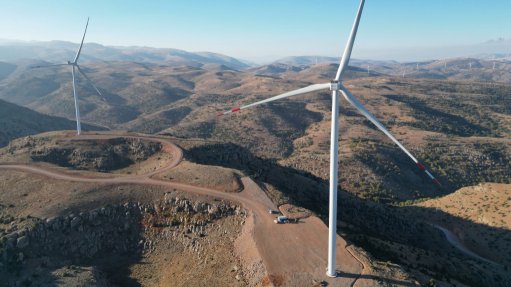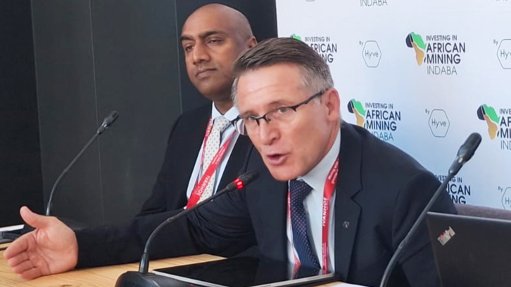Climate apartheid
The term ‘climate apartheid’ has been bandied about to refer to wealthy nations’ ability to pay to escape the overheating, hunger and conflict that ensue from climate change while the rest of the world bears the brunt of this human-made scourge.
‘Climate apartheid’ might sound mere climate activist-speak, but it is increasingly becoming the lived experience of many around the world, and signs that it is becoming more pronounced are there for all to see. The cyclone that hit Malawi – one of the world’s poorest countries – in March, displacing about half a million people, springs to mind. So too does the perennial drought in the Horn of Africa region.
According to the Switzerland-based Internal Displacement Monitoring Centre, climate- related disasters led to an additional 7.4- million internally displaced people in sub- Saharan Africa in 2022. This was almost as many as those internally displaced by conflict, and there is no prize for guessing that the number is poised to continue increasing, given the inability of mostly cash-strapped governments in the region to implement adequate mitigation and adaptation measures.
Nigeria recorded the highest climate disaster-induced internal displacements in 2022 – a whopping 2.4-million – and these were largely attributable to severe floods between June and November. As readers of this column would know, South Africa did not escape the ravages of excessive rainfall last year, with 42 000 people in KwaZulu-Natal having been displaced in April.
In the Horn of Africa, 1.1-million people were forced to leave their homes by a debilitating drought, the fifth in a row in what were supposed to be rainy seasons. The tallies in neighbouring Ethiopia and Kenya were 873 000 and 316 000 respectively.
Large-scale disaster-induced displacements also took place in South Sudan, where 596 000 people had to leave their homes because of drought, and the Democratic Republic of Congo, where the climate-related tally was 423 000.
The outlook is not encouraging. The World Bank forecasts that one in two internal climate migrants will be African by 2050, according to an article published by Africa Report this month.
It was therefore encouraging that climate change was firmly on the agenda when leaders of the world’s seven wealthiest nations – the G7 – met in Hiroshima, Japan, last month. The leaders called on all nations, especially the major economies, to commit to net zero by 2050 at the latest. This came against the background of China and India targeting net zero only in 2060 and 2070 respectively. Canada, France, Italy, Japan, the UK and the US all have a 2050 target, with Germany being the only major economy with an earlier target, namely 2045.
The Hiroshima summit also signed off on a call for all governments to ensure their climate targets and strategies are aligned with a 1.5 oC pathway and to update their official United Nations climate plans “as soon as possible and well before the COP 28 climate talks in November”.
These are definitely good gestures, but I find it difficult to disagree with climate activists, who were in Hiroshima in their numbers, repeating the mantra that historical polluters in the developed world should act faster to slash emissions than developing countries, which have contributed less to the climate crisis.
The historical polluters should also assist the global South with the financial aid and other support that is necessary to make the transition to less-polluting economies.
The rich nations have failed to provide the $100-billion a year that they promised developing countries to help them adapt to climate change and reduce their greenhouse-gas emissions. They, however, said at their Hiroshima shindig that they would work together “to fully meet the goal in 2023”.
Of course, countries in the global South should not just wait for assistance from the North – they must play their bit.
Article Enquiry
Email Article
Save Article
Feedback
To advertise email advertising@creamermedia.co.za or click here
Comments
Announcements
What's On
Subscribe to improve your user experience...
Option 1 (equivalent of R125 a month):
Receive a weekly copy of Creamer Media's Engineering News & Mining Weekly magazine
(print copy for those in South Africa and e-magazine for those outside of South Africa)
Receive daily email newsletters
Access to full search results
Access archive of magazine back copies
Access to Projects in Progress
Access to ONE Research Report of your choice in PDF format
Option 2 (equivalent of R375 a month):
All benefits from Option 1
PLUS
Access to Creamer Media's Research Channel Africa for ALL Research Reports, in PDF format, on various industrial and mining sectors
including Electricity; Water; Energy Transition; Hydrogen; Roads, Rail and Ports; Coal; Gold; Platinum; Battery Metals; etc.
Already a subscriber?
Forgotten your password?
Receive weekly copy of Creamer Media's Engineering News & Mining Weekly magazine (print copy for those in South Africa and e-magazine for those outside of South Africa)
➕
Recieve daily email newsletters
➕
Access to full search results
➕
Access archive of magazine back copies
➕
Access to Projects in Progress
➕
Access to ONE Research Report of your choice in PDF format
RESEARCH CHANNEL AFRICA
R4500 (equivalent of R375 a month)
SUBSCRIBEAll benefits from Option 1
➕
Access to Creamer Media's Research Channel Africa for ALL Research Reports on various industrial and mining sectors, in PDF format, including on:
Electricity
➕
Water
➕
Energy Transition
➕
Hydrogen
➕
Roads, Rail and Ports
➕
Coal
➕
Gold
➕
Platinum
➕
Battery Metals
➕
etc.
Receive all benefits from Option 1 or Option 2 delivered to numerous people at your company
➕
Multiple User names and Passwords for simultaneous log-ins
➕
Intranet integration access to all in your organisation


















